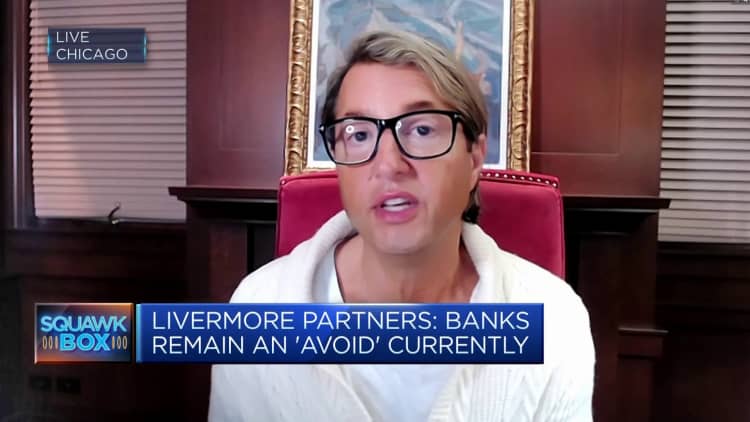An intensifying bond rout is piling pressure on the global economy and creating a “tremendously dangerous” outlook for equities, the chief investment officer of Livermore Partners hedge fund said Friday.
A new era of higher interest rates has caused bond yields to surge, hampering returns for investors and flipping on its head the status quo of the past decade-and-a-half, David Neuhauser told CNBC. Bond yields move inversely to prices.
Asked how worrying that landscape was for equities, he said: “I think it’s tremendously dangerous at this point.”
“We’re in this world of risk where, for almost 15 years, you had a bond market that was in a bull market, and you had rates negative for several years,” Neuhauser told “Squawk Box Europe.”
“That dynamic fed throughout the global economy, where housing prices were affordable, autos were affordable, and people were subjected to an environment and a lifestyle which had much lower interest rates.”

That environment has shifted as central banks have pushed ahead with rate hikes to tackle higher inflation. That, in turn, has pushed bond yields higher and sapped money from government budgets by raising borrowing costs.
In the U.S. Treasury market — a crucial component of the global financial system — bond yields have surged to highs not seen since the onset of the global financial crisis. In Germany, Europe’s largest economy, yields have hit their highest level since the 2011 euro zone debt crisis. And in Japan, where interest rates are still below 0%, yields have risen to 2013 highs.
“I think that is going to cause a lot of pain moving forward in terms of the economy,” Neuhauser said.
Bond bears ‘back from the dead’
Those fiscal imbalances are giving “a lot of ammunition to the bond bears,” the hedge fund manager added, with interest rates likely to remain higher for longer.
“What you’re seeing now with the bond market is, you know, bond vigilantes are back in vogue, back from the 80s, back from the dead, and I think they’re leading the market today,” Neuhauser said.
Neuhauser’s statement echoes similar comments earlier this week from UBS Asset Management’s head of global sovereign and currency, Kevin Zhao, who said “the bond vigilante is coming back.”
NEW YORK, NY – FEBRUARY 27: Traders work on the floor of the New York Stock Exchange on February 27, 2020 in New York City. With concerns growing about how the coronavirus might affect the economy, stocks fell for the fourth straight day. The Dow Jones Industrial Average lost almost 1200 points on Thursday. (Photo by Scott Heins/Getty Images)
Scott Heins | Getty Images News | Getty Images
Central banks have been keen to stress that interest rates are unlikely to start falling any time soon. The European Central Bank reiterated the point Thursday, holding rates steady at a record high of 4%, while the U.S. Federal Reserve is expected to hold at 5.25%-5.50% next week.
Neuhauser said these higher rates will weigh heavily on consumers and corporates.
“I think that’s going to cause a lot of pressure on the credit markets, it’s going to cause a lot of pressure on the consumer going forward,” he said.
Corporates, too, are set to come under pressure from high debt and refinancing costs, Neuhauser said.
“Ultimately that will lead to the downtrend of the economy and also it’s going to hurt the stock market and you’re starting to see that today,” he added.
Credit: Source link













